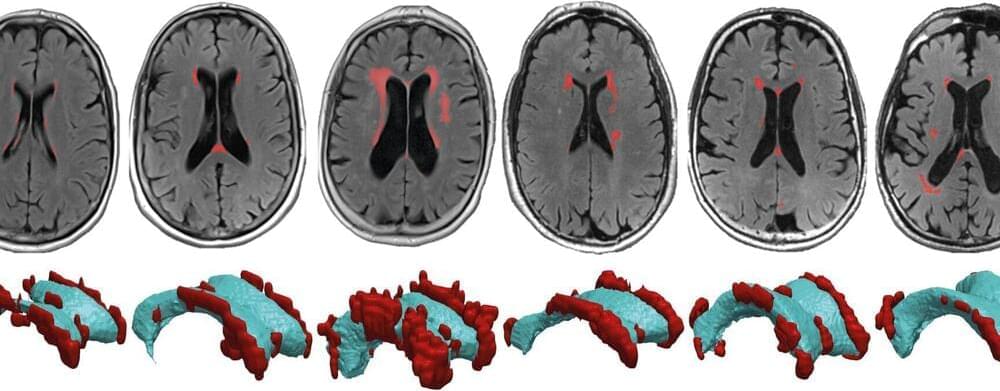Researchers at Stevens Institute of Technology show that strain on ventricular walls explains where lesions develop in the aging brain.
As our brains age, small lesions begin to pop up in the bundles of white matter that carry messages between our neurons. The lesions can damage this white matter and lead to cognitive deficits. Now, researchers at Stevens Institute of Technology and colleagues not only provide an explanation for the location of these lesions but also how they develop in the first place.
The work, led by Johannes Weickenmeier, an assistant professor of mechanical engineering at Stevens, highlights the importance of viewing the brain as more than neural circuitry that underpins how thoughts are formed, and memories created. It’s also a physical object that’s prone to glitches and mechanical failures. “The brain is susceptible to wear and tear in vulnerable areas,” Weickenmeier said. “Especially in an aging brain, we need to look at its biomechanical properties to better understand how things can start to go wrong.”
